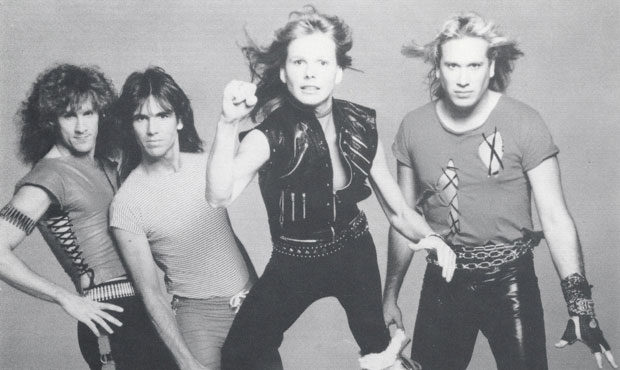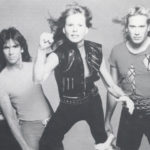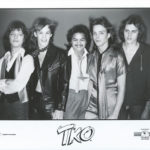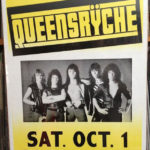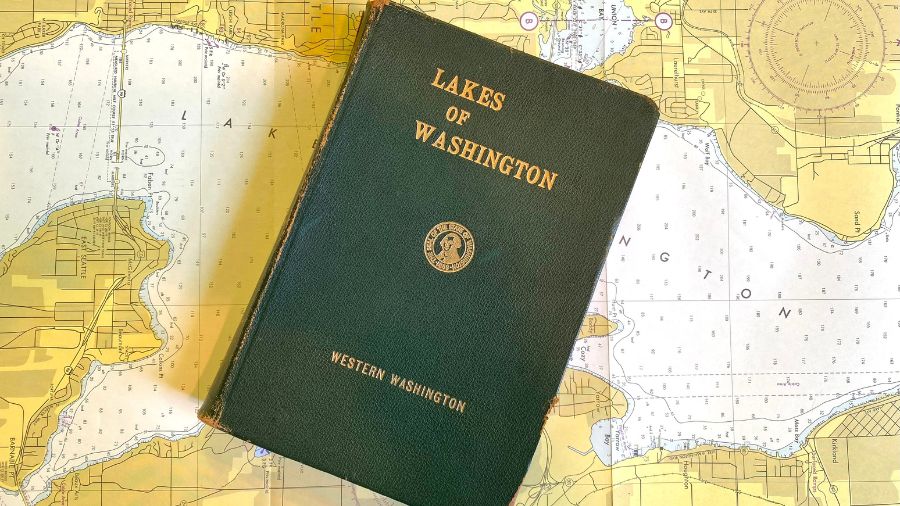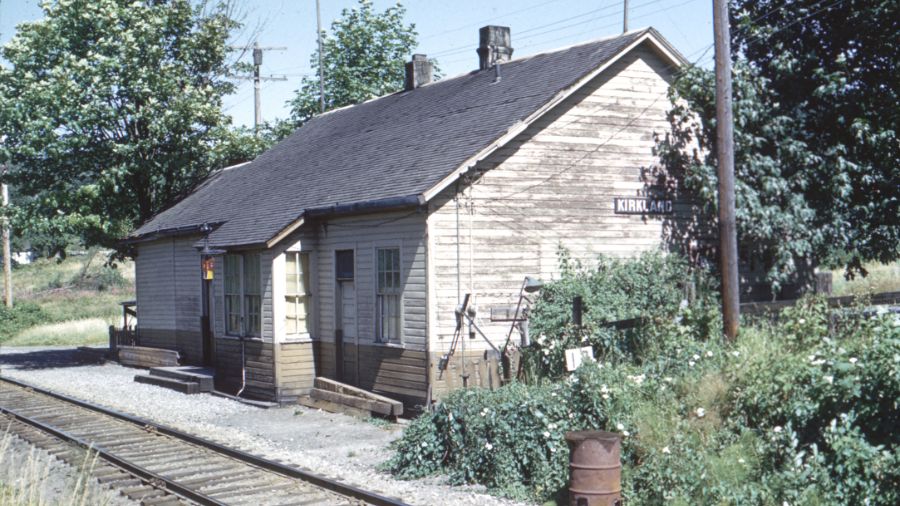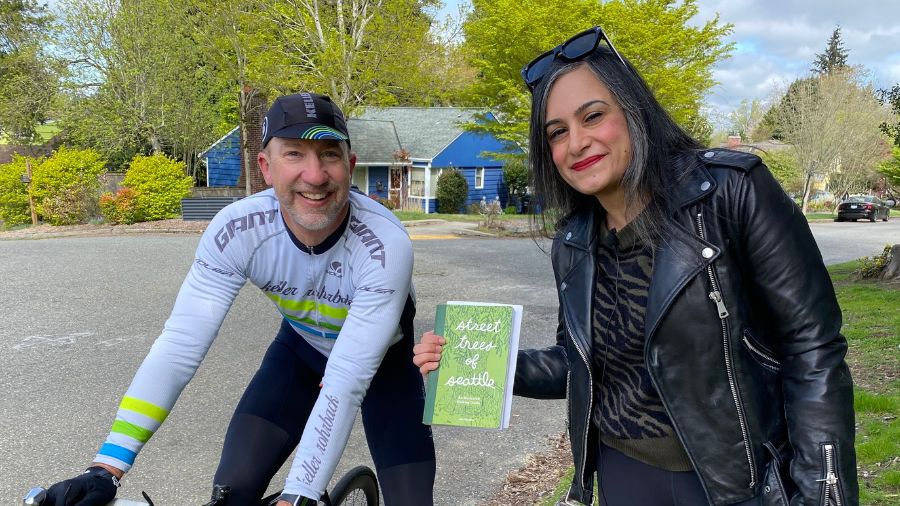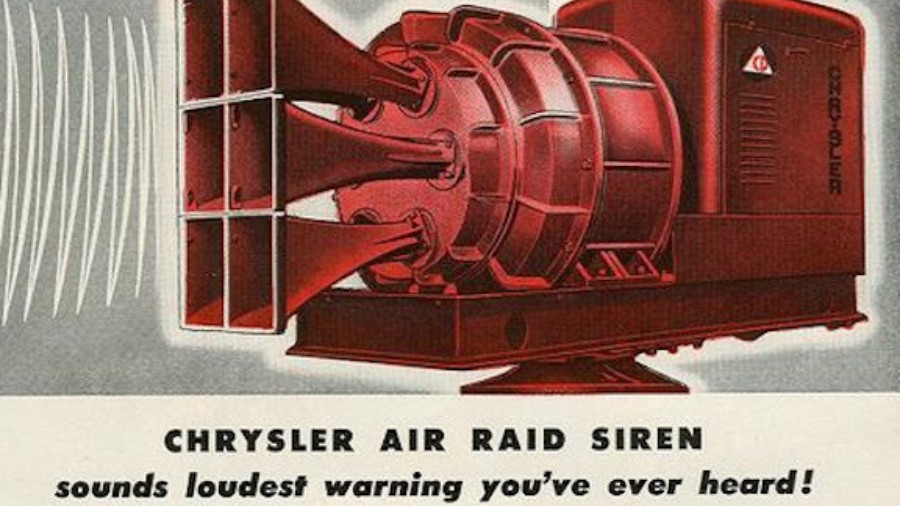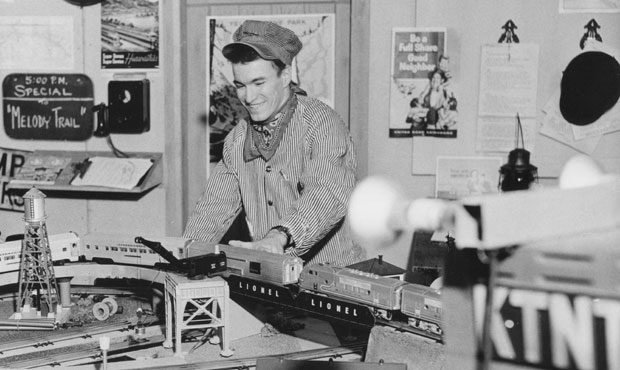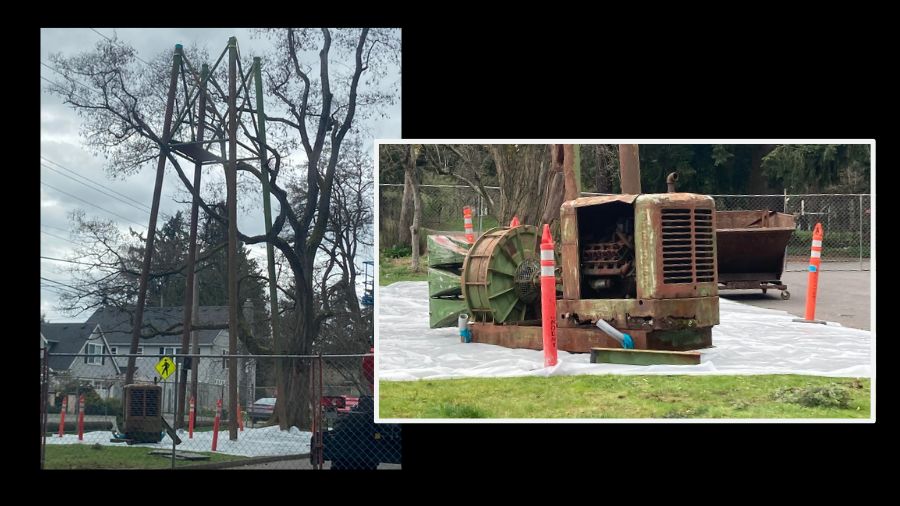‘Rusted Metal’ tells mammoth story of Northwest’s hard rock history
Nov 18, 2020, 9:34 AM | Updated: 10:38 am
In places like a roller rink in Lake Hills and an old supermarket in Kirkland, local heavy metal bands once ruled a vibrant scene in the Northwest. And now, a new – and very large – book attempts to document 25 years of regional hard rock history.
The book, which is really an enormous encyclopedia, was just published by NW Metalworx, a group of hard-rock enthusiasts (with day jobs) who have been issuing compilation CDs and staging reunion concerts for the past several years. Rusted Metal: A Guide to Heavy Metal and Hard Rock Music in the Pacific Northwest, 1970 to 1995 is the work of James R. Beach and co-authors Brian Naron, James Sutton and James Tolin.
“It’s 902 pages, so it’s a doorstop,” said author and publisher James Beach by phone from his Longview home. “It got a bit unwieldy when we tried to include everybody, and I’m sure we left some bands out.”
Beach, 50, is a fan of all kinds of music. He saw the band KISS when he was just 8 years old, and it really made an impression, and led to a lifetime of listening to hard rock and learning about the bands who played it. Growing up in the Portland area, Beach went to a lot of local metal band shows at clubs in the Rose City in the ’80s, and made trips to Seattle to see shows at now long-gone clubs like RKCNDY and the Off Ramp.
In talking with his friends about the bands they loved, their favorite records, record stores, clubs and shows, Beach and the others began to see patterns and connections that spoke to a certain regionalism, and then discovered links between the bands and various scenes in Washington and Oregon.
With all that raw material, they figured that someday, somebody would write a book.
“There was a lot of focus on the grunge stuff and, of course Heart and Nirvana [and a] lot of other bands have had books on them, but there just wasn’t much on the metal scene and [it was] pretty huge,” Beach said. “So we just kind of kept waiting for somebody else to put out a book and nobody did. So I finally just said, ‘Well, I’ll do it.’”
That was more than just a few years ago.
“Little did I know that it would take as long as it did,” Beach said, chuckling. “But that’s the way it goes with some of these things.”
Rusted Metal is much more than just an encyclopedia – and, anyway, can you imagine the old World Book in your elementary school library trying to describe Culprit or perhaps TKO? Those 902 pages are packed with band profiles, many of which are illustrated with promo photos and old posters. The individual entries are supplemented with interviews with a wide range of musicians and others in the music business.
In an interview with Mike McCready, the Pearl Jam guitarist describes his early years in an Eastside metal band called Shadow. Sure enough, photos are included, replete with ample amounts of the feathered hair that held sway during the Carter administration.
“Shadow burned brightly around early-80s Seattle and Bellevue. I wouldn’t have known how to be in Pearl Jam, or get to where I am as a guitar player, without that early experience,” says McCready in his Rusted Metal interview. “In my mind, Shadow was incredibly valuable to the Seattle scene. I think we followed the same D.I.Y. ethic as other bands, because we had to.”
Shadow was part of a sprawling heavy metal scene east of Lake Washington in the 1970s and 1980s, along with dozens of other bands and a handful of iconic venues.
One of the most famous bands to emerge from the Eastside scene in the early years was Rail.
“They were basically headlining the Paramount [in Seattle] in the mid-70s with playing all cover songs,” James Beach said. “They had a couple of originals, but they were primarily doing cover songs and playing fairly large venues to large crowds, and it’s kind of interesting how that stuff sort of changed.”
That evolution – encompassing bands, venues, musical styles and tastes – is one reason that Rusted Metal spans 25 years, and why Rail is such a great example of how bands and the scene morphed over the years.
Rail was founded by junior high students in Bellevue in 1970. By the late 1970s, they began writing and playing more originals, and in 1983, they won MTV’s first-ever “Basement Tapes” competition. In the years that followed, they put out records and toured a lot with some big national acts. But before all that, in the 1970s, they were stalwarts of a venue on the Eastside called Lake Hills Roller Rink – which a lot of people still have memories of — including Rail guitarist Rick Knotts.
“I was probably 11 or 12,” Knotts told KIRO Radio, describing one of the first times he visited Lake Hills Roller Rink. “I rode my bicycle up to the back and the door was open, and I was just starting to take guitar lessons and there were people loading equipment and setting up to play a band and I thought, ‘Gosh, someday I’m gonna play there.’ And I ended up with the band Rail, [and] we were one of the biggest draws in the place.”
Knotts, who still plays with Rail, describes those early Eastside years as a “magic” era.
“We used to get ready up the street, because we lived in the area,” Knotts said. “And [we’d] come up to the parking lot, and see the entire parking lot full and [with cars parked] out into the dirt.”
“And we knew it was going to be a really cool night,” Knotts said.
Tony Fulgham is a Seattle-based musician and filmmaker who also fondly remembers the rockin’ roller rink.
“The beautiful thing about the Lake Hills shows was the two stages, one at either end of the rink,” Fulgham wrote on Facebook in response to KIRO Radio request for recollections of the venue. “One band would play while the next band would set up. It was nonstop all night. As soon as the first band was done everyone would race as fast as they could across the rink to get a spot next to the stage for the next band.”
A few miles north of Lake Hills in Kirkland, in a video and pinball arcade called the End Zone – in a rundown old 1950s supermarket – was where future Queensryche lead singer Geoff Tate played the venue’s inaugural show fronting a band called Myth in 1981.
Both the End Zone and Lake Hills Roller Rink are long-gone; condos and retail replaced the old supermarket (which had become an antique mall) a few years ago, and a playground now stands where Rail and others once rocked hard.
One of the fascinating aspects of hard rock music in the 1970s and 1980s – before grunge blew everything up and Vogue featured models wearing flannel shirts – is the tribalism or factionalism that made some kids love heavy metal, made some other kids love punk, and made the two groups often see themselves and their preferred genres having nothing in common with each other.
For certain music fans – including Rusted Metal author James Beach – it all kind of blends together, though there’s almost a taxonomy of related species, set apart only by very subtle traits.
In the Pacific Northwest, music of all stripes has often been loud, fast, and possessing a certain homemade or “D.I.Y.” quality. Is there any easy way for an amateur to tell the genres apart?
“Well, this guy started doing guitar solos in the songs,” Beach said, speaking hypothetically of one possible distinguishing characteristic. “And all of a sudden, it’s metal.”
Rusted Metal is available online from NW Metalworx.
You can hear Feliks every Wednesday and Friday morning on Seattle’s Morning News and read more from him here. If you have a story idea, please email Feliks here.

